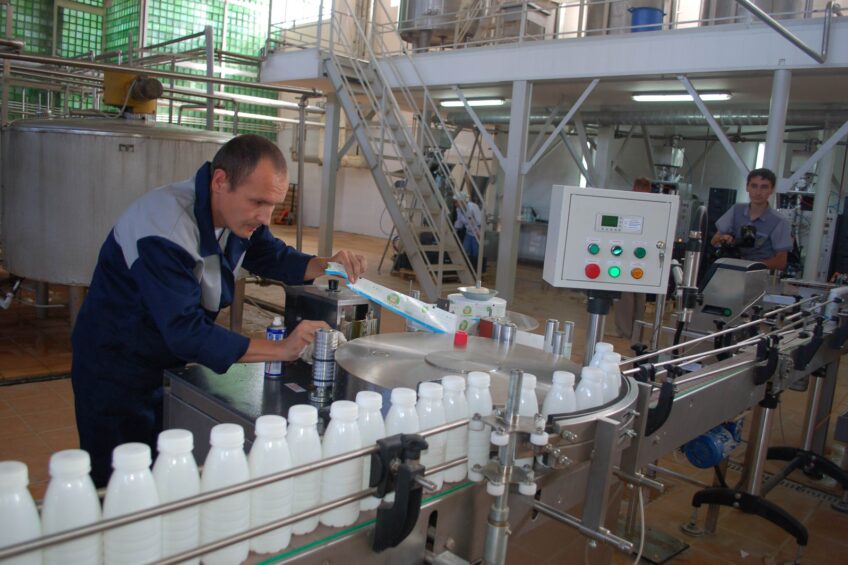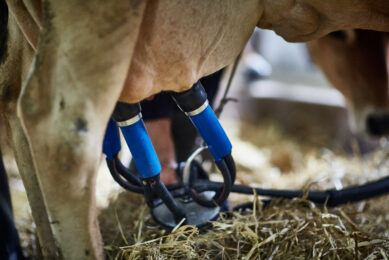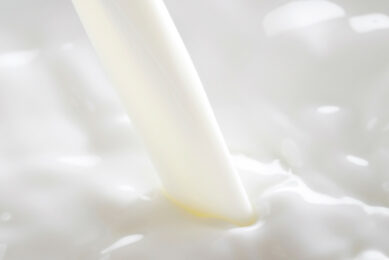Moldova: Dairy farmers are losing the battle

Dairy manufacturers in Moldova may go bankrupt within a year as domestic products are being pushed out of the country’s market by cheap imports, primarily from the Ukraine. This is stated in the recent report from the Association of Dairy Farmers (Lapte). Protective measures against import supplies are therefore needed.
Ukraine produced 11.5 million tonnes of milk in 2014 and the forecast for 2015 was 11 million tonnes. Domestic consumption accounts for 6.5 million tonnes, while the rest goes for export. The main purchaser of Ukrainian dairy products used to be Russia, but banned these products as of July 28, 2014. Local manufacturers have therefore been searching for alternative markets. One of these markets is Moldova.
In 2014, Moldova only processed 520,000 tonnes of milk, which is equal to 10% of the surplus of the Ukrainian dairy industry. “Ukrainian products are much cheaper than Moldovian, due to the cheaper raw materials and this lowers production costs for a litre of milk. One litre of milk with a fat content of 3.5% in Ukraine has a production cost of €0.19 with a tendency to decrease, while in Moldova it stands at €0.29,” explains Lapte’s executive director Carolina Lint. In addition, Ukrainian producers are spending huge amounts of money to promote their products (in Moldova). In supermarkets for example, 2 bottles of dairy products are sold for the price of 1. Also the labels are Ukrainian, they don’t even bother to translate the labels for the Moldavian consumers,” says Lint. The supermarkets are flooded with Ukrainian dairy products and Moldavian milk processors are trying to keep the €0.26 per litre to prevent dairy farmers having to give up their business. Exporting Moldavian dairy to Ukraine is not an option.
Action needed from government
Lapte is therefore demanding the government do something about import supplies, and introduce protective import duties. Representatives of the country’s Economy Ministry confirmed that the request is currently under consideration. “If our dairy producers are really suffering losses, we should look into various protective measures, including anti-dumping and countervailing. We can also make an exception from the free-trade regime (with Ukraine, introducing import duty). But for now, we only investigate the situation,” says Deputy Minister of Economy Octavian Calmac. All these measures are quite expensive. The representatives of Lapte also proposed a number of non-tariff protection measures. Since Moldova has several supermarket chains owned by Ukrainian business, and they import milk products from Ukraine, local manufacturers believe that it would be right to legally separate merchant from the importers. Also to increase the cost of Ukrainian products, it is necessary to oblige manufacturers to use packaging that bears information in Romanian, not in the Ukrainian language.
Development plan needed for Moldova’s dairy sector
At the same time, the Moldovian dairy industry also has a number of permanent problems, including expensive loans and the lack of comprehensive programme of industry development. Anatoly Rusu, head of Sistem Campos Company, based in Anenii Noi has a farm with 45 animals, including 25 dairy cows. He co-operates with the local town hall which buys milk for nurserys and schools in 2 villages for €0.28 – €0.31 per litre. The rest he sells to a processor for €0.17 per litre including VAT. “This is a very low price. To cover the production costs we need to sell milk for an average of €0.30,” says Anatoly Rusu. “It’s time that the government starts paying attention to our dairy sector. For all the years of independence, Moldova has not developed a strategy for developing the dairy industry. This would involve a solid programme with production and export goals. “Over the past few years, we have not been able to modernise our businesses or come up with new products or production innovation on cheese and yoghurt, which is key to survival or have a strong presence in the Middle East and Asia for example,” says Carolina Lint. According to data from the Economy Minister the industry did receive some subsidies over the last few years. For example, only in 2014 MDL 11.2 million (€503,000) of subsidies were granted for the purchase of 1,354 heads of cattle and MDL 42.5 million (€1.9 million) for the purchase of equipment and modernisation of farms. Over the past 5 years, the government has allocated MDL 500 million of investments (€22.4 million). As a result, the structure of the industry has changed and moved from private farms to more industrial farms. “Still, this means that Moldavian farmers are struggling with the Ukrainian sector. We cannot develop and implement European standards, to modernise the facilities and obtain a certificate of DG Sanco. Obviously, if we would not do that then the production of milk and dairy products in the country will sink into oblivion,” the head of Lapte concludes.
Join 13,000+ subscribers
Subscribe to our newsletter to stay updated about all the need-to-know content in the dairy sector, two times a week.


![A truck that transports Moldovian dairy. Moldovia suffers from cheap imports from Ukraine. [Photo: Azbuka Moloka] A truck that transports Moldovian dairy. Moldovia suffers from cheap imports from Ukraine. [Photo: Azbuka Moloka]](/Resizes/420x315/PageFiles/15/05/515/Photogallery/002_154_rb-image-2734932.jpeg)








